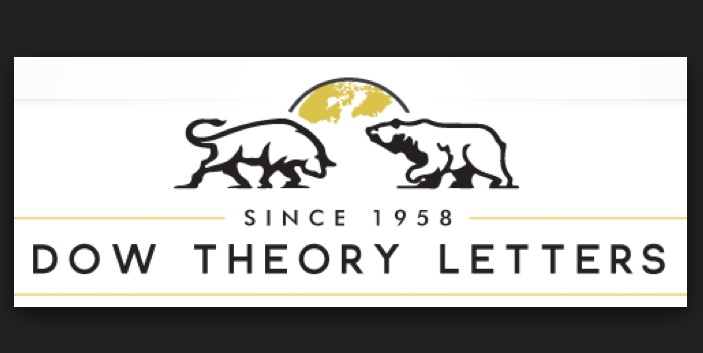
The financial markets have kicked off the week with a significant surge, largely propelled by the blockbuster acquisition of Kenvue Inc. (NYSE: KVUE) by Kimberly-Clark Corporation (NYSE: KMB). This monumental $48.7 billion cash-and-stock deal, announced on November 3, 2025, has sent positive ripples through the stock market, particularly benefiting Kenvue shareholders who are set to receive a substantial premium. The transaction is poised to create a formidable new leader in the global consumer health and personal care sectors, with an estimated $32 billion in annual revenue.
For Kenvue, the spin-off from Johnson & Johnson (NYSE: JNJ) in 2023, this acquisition marks a pivotal moment, offering a strategic exit from a challenging period characterized by declining sales, leadership changes, and ongoing legal battles. The deal, one of the largest in the consumer health industry's history, is viewed as a stabilizing force for Kenvue's portfolio of iconic brands, including Tylenol, Band-Aid, and Neutrogena, by integrating them into Kimberly-Clark's established operational framework and vast market reach.
Detailed Coverage: The Birth of a Consumer Powerhouse
The agreement stipulates that Kenvue shareholders will receive $3.50 in cash along with 0.14625 shares of Kimberly-Clark for each Kenvue share they hold, totaling approximately $21.01 per share. This represents a significant 46.2% premium over Kenvue's closing price prior to the announcement. Upon the deal's expected closure in the second half of 2026, subject to shareholder and regulatory approvals, Kimberly-Clark shareholders are projected to own approximately 54% of the combined entity, with Kenvue shareholders holding the remaining 46%. The combined company is anticipated to generate approximately $32 billion in annual revenue and boast roughly ten billion-dollar brands.
The path to this megadeal has been paved by a series of events, beginning with Johnson & Johnson's strategic decision in November 2021 to separate its Consumer Health segment. Kenvue officially spun off through an Initial Public Offering (IPO) in May 2023, initially valued at $48 billion. However, its journey as an independent company has been fraught with challenges. Kenvue's stock declined significantly post-IPO, missing Wall Street sales estimates and lowering its full-year outlook. The company also faced leadership changes, with CEO Thibaut Mongon departing in July 2025 before Kirk Perry was named permanent CEO on the day of the acquisition announcement. Furthermore, Kenvue has been impacted by ongoing litigation related to its talcum powder products and scrutiny over its top-selling Tylenol brand, which has faced unproven claims linking it to autism. These headwinds undoubtedly made the acquisition by Kimberly-Clark a welcome strategic alternative.
Key players in this landmark transaction include Mike Hsu, Chairman and CEO of Kimberly-Clark, who will lead the combined company, and Larry Merlo, Kenvue's Chairman, both of whom expressed optimism about the new entity's potential. Johnson & Johnson (NYSE: JNJ), as Kenvue's former parent, indirectly benefits from the resolution of its spin-off's challenges. JPMorgan Chase Bank, N.A. is providing committed financing for the cash component of the deal.
Initial market reactions were a tale of two companies: Kenvue's shares surged over 16-20% in premarket trading, reflecting investor delight at the premium. Conversely, Kimberly-Clark's stock tumbled by approximately 12.5% to 16%, as investors weighed the hefty acquisition cost, potential dilution, and integration risks. The broader industry views this as a major consolidation, potentially redefining the global consumer health sector and intensifying competition against rivals like Procter & Gamble (NYSE: PG) and Unilever (NYSE: UL).
Winners and Losers: Reshaping the Consumer Landscape
The Kenvue-Kimberly-Clark acquisition will undoubtedly create a new hierarchy within the consumer health and personal care markets, producing clear winners and posing significant challenges for others.
Kimberly-Clark (NYSE: KMB) stands as a primary winner. This acquisition dramatically transforms its market positioning from a company primarily known for paper-based hygiene products (Huggies, Kleenex) into a diversified consumer giant with a strong foothold in high-margin consumer health products. The deal expands Kimberly-Clark's product portfolio with iconic brands like Tylenol, Neutrogena, and Listerine, allowing for significant cross-selling opportunities and brand extensions. Financially, while the acquisition involves a substantial debt load, the anticipated $2.1 billion in annual cost synergies and expanded revenue base are expected to drive long-term value and make the deal accretive to adjusted EPS by year two. This strategic pivot aligns with Kimberly-Clark's goal to focus on higher-growth, higher-margin businesses.
Kenvue Inc. (NYSE: KVUE) and its shareholders are also clear winners. Shareholders receive a substantial 46.2% premium, providing immediate and significant returns. For Kenvue itself, the merger offers a lifeline, integrating its brands into a larger, more stable entity with robust manufacturing, distribution, and retail presence. This can help Kenvue's brands overcome recent sales declines, legal challenges, and leadership uncertainties, benefiting from Kimberly-Clark's operational expertise and R&D capabilities.
Johnson & Johnson (NYSE: JNJ), having fully divested from Kenvue, experiences minimal direct financial impact. However, the acquisition indirectly validates its strategic decision to spin off the consumer health division, allowing J&J to focus on its higher-margin pharmaceutical and medical device segments.
The primary losers will be competitors in both the personal care and consumer health markets. Companies like Procter & Gamble (NYSE: PG), Unilever (NYSE: UL), Colgate-Palmolive (NYSE: CL), Reckitt Benckiser (LSE: RKT), Bayer (FWB: BAYN), and Haleon (NYSE: HLN) will face a more formidable rival with an expanded product range and increased market dominance. This could lead to intensified competition, market share erosion, and pricing pressures. The sheer scale of the combined entity could also raise barriers to entry for smaller players.
Consumers could experience mixed outcomes. While the merged entity's efficiencies might lead to competitive pricing initially, a reduction in overall market competition due to consolidation could potentially lead to fewer choices or higher prices in the long run. Lastly, employees of both companies may face redundancies as operations are streamlined and overlapping roles are eliminated during the integration process.
Wider Significance: A Trend Towards Health and Scale
This acquisition is not merely a corporate transaction; it's a profound indicator of several overarching trends shaping the consumer health and personal care industries. The deal underscores a pervasive drive towards portfolio reshaping and diversification, as companies shed non-core assets and acquire brands that align with evolving consumer demands for health, wellness, and sustainability. Kimberly-Clark's move explicitly pivots its portfolio towards higher-growth, higher-margin consumer health, reflecting the increasing emphasis consumers place on well-being.
Furthermore, the $48.7 billion valuation highlights a strong trend of consolidation for scale and efficiency. In a dynamic market characterized by changing consumer behaviors, rising costs, and global economic headwinds, large-scale mergers allow companies to achieve economies of scale, streamline operations, and enhance their market leverage. The anticipated $2.1 billion in annual cost synergies from this deal exemplify this strategic imperative. The acquisition also serves as a response to market challenges, providing Kenvue with stability amidst its recent struggles and offering Kimberly-Clark new avenues for growth.
The ripple effects will be significant. For competitors, the combined entity creates a new powerhouse, potentially spurring further M&A activity within the sector as rivals seek to gain scale or strengthen their niche positions. Retailers will face a larger, more influential supplier, which could shift negotiation dynamics for shelf space and promotions. Suppliers might experience pressure for lower costs due to increased purchasing power.
From a regulatory perspective, the sheer size of the deal and the potential for market concentration will attract intense scrutiny from antitrust bodies globally, including the U.S. Federal Trade Commission and the European Commission. While Kimberly-Clark and Kenvue operate in somewhat distinct segments, overlaps in adjacent categories like skincare or baby care might necessitate divestitures. Kenvue's existing legal challenges, particularly regarding talcum powder and Tylenol, will also be a key consideration, with regulators monitoring how the combined entity addresses these issues.
Historically, the consumer goods sector has seen numerous mega-mergers driven by similar motivations. The trend of pharmaceutical giants divesting their consumer health components (e.g., GSK's spin-off of Haleon) has created standalone entities that are now ripe for acquisition by dedicated consumer goods powerhouses. This acquisition can be seen as a continuation of this strategic realignment, where consumer health assets find new homes within larger, more diversified conglomerates, aiming for enhanced market leadership and efficiency.
What Comes Next: Integration, Innovation, and Oversight
The period leading up to the expected closure in the second half of 2026 will be critical for the Kenvue-Kimberly-Clark integration. Short-term priorities will involve meticulous planning for merging organizational structures, identifying key personnel, and strategizing the integration of supply chains, R&D, and marketing efforts. Kimberly-Clark CEO Mike Hsu will lead the combined company, with three Kenvue board members joining Kimberly-Clark's board post-closing. The deal's success hinges on securing necessary shareholder and regulatory approvals, a process that could entail delays or require divestitures if antitrust concerns arise. Kimberly-Clark has secured committed financing and anticipates achieving $2.1 billion in annual cost synergies within the first few years, albeit with $2.5 billion in cash costs for integration within the first two years.
Long-term possibilities for the combined entity are ambitious. With an estimated $32 billion in annual net revenues and approximately $7 billion in adjusted EBITDA, the merger creates an expanded portfolio that leverages Kimberly-Clark's strengths in personal care with Kenvue's diverse consumer health brands. This comprehensive offering is expected to enable cross-selling, deeper market penetration, and enhanced innovation through increased investment in R&D. The strategic pivot towards higher-growth, higher-margin businesses, particularly in consumer health, aligns with Kimberly-Clark's stated transformation journey. The company also aims to optimize supply chains, extending its "Powering Care" strategy to a larger, more complex operational footprint.
However, significant challenges loom. The integration of two large organizations with distinct cultures and systems is inherently complex and carries substantial risks. The considerable debt burden taken on for the acquisition could limit financial flexibility in the short to medium term. The highly competitive consumer packaged goods sector will see rivals adapting their strategies, and managing a vastly expanded portfolio of brands, some with overlapping consumer bases, will be crucial. Furthermore, Kimberly-Clark will inherit Kenvue's ongoing legal challenges, particularly those related to talcum powder and Tylenol, requiring careful mitigation.
Potential scenarios range from successful integration leading to a stronger, more diversified, and profitable entity, to integration difficulties resulting in underperformance. Competitors may respond with their own consolidation or intensified marketing efforts. Ongoing regulatory oversight will also influence future strategies, particularly concerning product claims and market dominance. Ultimately, the success of this ambitious endeavor will depend heavily on effective integration, the realization of synergies, and the ability to navigate both market opportunities and persistent challenges.
Wrap-Up: A New Chapter in Consumer Health
The acquisition of Kenvue (NYSE: KVUE) by Kimberly-Clark (NYSE: KMB) is a landmark event, ushering in a new era for both companies and reshaping the global consumer health and personal care landscape. The formation of this new global health and wellness leader, boasting 10 billion-dollar brands and an estimated $32 billion in annual revenues, represents a strategic masterpiece aimed at leveraging complementary portfolios and achieving significant cost synergies. For Kenvue shareholders, the deal provides a substantial premium and a clear path forward from recent corporate headwinds. For Kimberly-Clark, it marks a bold pivot towards higher-growth, higher-margin businesses, solidifying its position as a diversified consumer giant.
Moving forward, the market will closely assess the integration process, which is critical for realizing the anticipated $2.1 billion in annual cost savings. The combined entity's ability to effectively manage its expanded portfolio, innovate across diverse categories, and navigate potential regulatory and legal challenges will determine its long-term success. This acquisition underscores the ongoing trend of consolidation in the consumer goods sector, driven by a relentless pursuit of scale, efficiency, and growth in an ever-evolving market.
Investors should remain vigilant in the coming months, closely monitoring several key aspects. Regulatory approvals, expected in the second half of 2026, will be a crucial checkpoint. The progress of the integration process, including any restructuring costs and the pace of synergy realization, will directly impact financial performance. Investors should also scrutinize the pro forma financial statements and future earnings guidance of the combined entity, paying close attention to the impact of the debt burden. Furthermore, how Kimberly-Clark addresses Kenvue's inherited legal and reputational risks will be vital. Finally, observing the market's valuation of the combined entity, especially Kimberly-Clark's stock performance, and any clarity on future dividend policy and capital allocation strategies will be essential for informed investment decisions. This megadeal is not just a transaction; it's a testament to the dynamic nature of the financial markets and the continuous strategic evolution of global consumer powerhouses.
This content is intended for informational purposes only and is not financial advice






